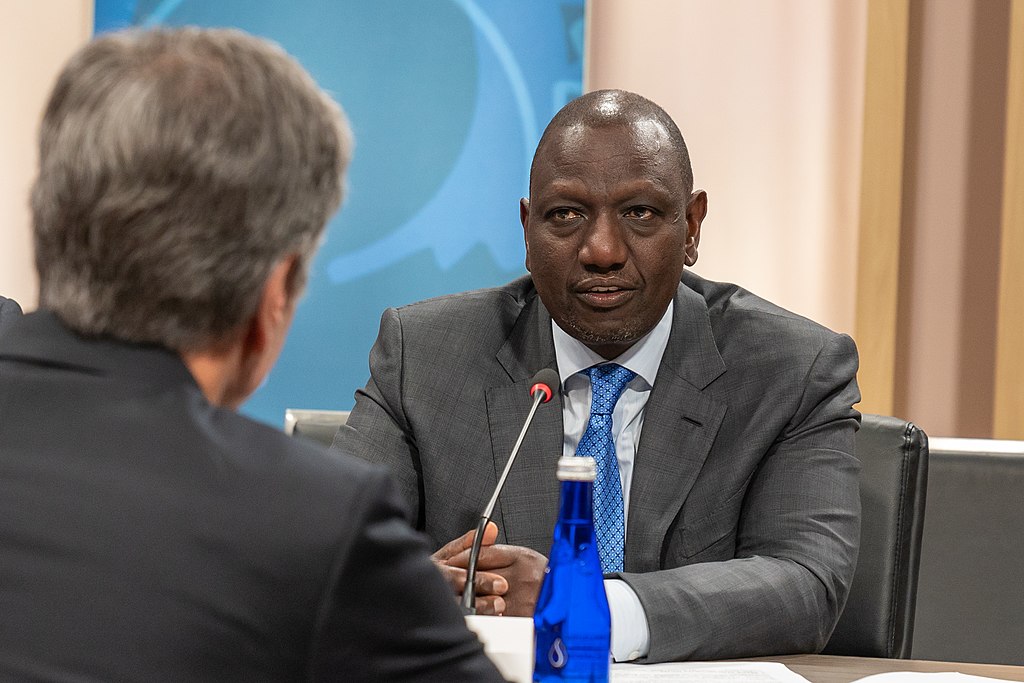Healthcare reform in Kenya continues to cause concern for patients and right-to-health organizations as President William Ruto pursues several controversial bills. The changes, which propose the establishment of a new fund pooled from workers’ salaries, have been described as vulnerable to corruption and may escalate the ongoing cost-of-living crisis.
The reforms have also been criticized for the lack of inclusion of the people and civil society organizations in the process of their design, stepping further away from the course taken by previous administrations. In December 2017, former President Uhuru Kenyatta committed his administration to the realization of Universal Health Coverage (UHC). The government announced it would deliver UHC primarily through a nationwide expansion of insurance through the National Health Insurance Fund (NHIF).
This represented a major departure from the pilot phase of the reform, which had eliminated out-of-pocket spending at public facilities in four pilot counties with considerable success. In the areas that participated in the pilot, people could access medical services in sub-county and county referral hospitals – locally classified as Level 4 and Level 5 healthcare institutions – for free. Emergency services, child, maternal, and mental services were free in all public health facilities.
Read more | Healthcare in Kenya remains elusive due to commercialization
In 2022, Ruto’s Kenya Kwanza government re-launched UHC after taking office. In that, they rushed implementation even before the bills were presented before parliament and senate, and introduced aspects to the content that were not in the previous arrangements.
The government introduced four bills in parliament to operationalize UHC without effective public involvement. These bills were the Primary Healthcare Bill, the Digital Health Bill, the Facility Improvement Bill, and the Social Health Insurance Bill. Civic organizations and the public were unhappy with this move and initiated action.
A network consisting of the People’s Health Movement (PHM) Kenya, Amnesty International, the Kenya Medical Practitioners, Pharmacists and Dentists Union (KMPDU), the International Commission of Jurists (ICJ), the Health NGOs Network (HENNET), and the National Taxpayers Association (NTA), among other organizations, assembled quickly to find a way forward.
The organizations analyzed the proposed bills, and drafted and presented a memorandum to the parliament and to the senate. Their observations were conspicuously ignored in the final draft bills. For example, the Facility Improvement Bill introduced the concept of an expenditure committee. This body is tasked with receiving, interrogating, and approving plans and budgets from county and sub-county hospitals, health centers, and dispensaries. Yet, the bill lacks clarity and specificity on the composition, powers, and procedures of forming the committee. This leaves room for ambiguity and misinterpretation.
The same coalition of organizations requested clarifications on the composition, qualification, and procedure of forming the expenditure committee, yet they received no answer. The bills were then rushed through parliament and the senate, passed into law, and accepted by the president within a record time of one month.
Civil society came together once again and decided to seek redress from the courts through a lawyer. A petition was presented in court challenging public participation threshold on the three acts: Primary Health Act, Digital Health Act, and Social Health Insurance Act. The team managed to get a conservatory order, restraining the government from implementing and enforcing the Acts.
Civil society is now holding its breath as a verdict of the High Court is expected on February 7, 2024. Based on a previous ruling on the Building Bridges Initiative, a program which was defeated in court due to the fact that it was initiated by the president instead of the public, the organizations remain hopeful that there might still be a way to put a brake on the reform pack and gear it towards meaningful public involvement. Achieving UHC, let alone universal health care, in Kenya remains a work in progress.
William Omenyo is an activist in the People’s Health Movement (PHM) Kenya.
People’s Health Dispatch is a fortnightly bulletin published by the People’s Health Movement and Peoples Dispatch. For more articles and to subscribe to People’s Health Dispatch, click here.





